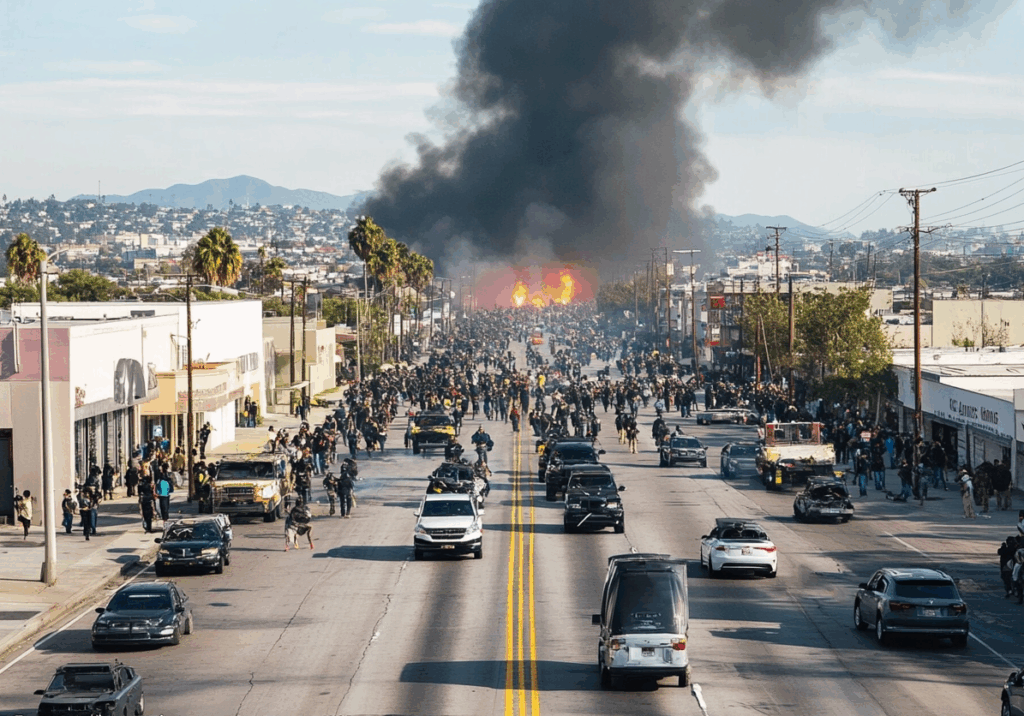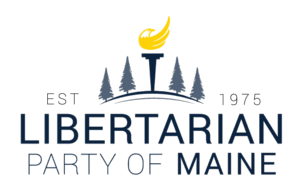
The recent unrest in Los Angeles—riots disguised as protests, blocked roads, and violent confrontations— brings back troubling echoes of the 2020 “Summer of Love.” These actions, now rebranded under slogans like “No Kings, No Borders,” follow a familiar pattern: chaos masquerading as justice, often backed by foreign influence and funded by NGOs aligned with statist and authoritarian interests. USAID, multiple globalist NGOs, and even the Chinese Communist Party have been credibly linked to supporting this movement, making it less a call for liberation and more a well-funded campaign to erode national and cultural sovereignty.
This is not merely a concern for border states or urban centers. The consequences reverberate across every region, including here in Maine. We are not immune. Asylum seekers and undocumented immigrants continue to pour into our cities, and local budgets are being stretched to the breaking point. Shelters and housing services that once served vulnerable Mainers are now overwhelmed. Taxpayer dollars—forcibly extracted under threat of penalty—are being rerouted to sustain a system designed to reward dependency.
In response to the escalating violence, federal authorities have deployed the National Guard and U.S. Marines to maintain order—a move criticized by many as abrupt and authoritarian. While President Trump’s decision to activate these forces may seem heavy-handed, it must be seen in the context of preventing a repeat of the 2020 riots, which spiraled into widespread destruction and chaos. Preemptive action, while not ideal, may be the unfortunate reality when institutions fail to uphold order early on.
Every individual holds the natural right to migrate, trade, and seek better opportunities. However, those rights hinge on one critical condition: respect for the Non-Aggression Principle (NAP), which holds that no individual or group may initiate force or coercion against another person or their property. This foundational idea underpins a society rooted in voluntary cooperation and private ownership. Without it, any claim to liberty is hollow.
In our current system, immigration is entangled with state coercion. Taxpayer-funded benefits incentivize dependency rather than integration. This is not abstract theory—here in Maine, we’ve seen a massive influx of new arrivals placed into taxpayer-funded housing, while local residents face rising property taxes and shrinking budgets for essential services. Fraudulent benefit claims have surged in the past year, overwhelming public institutions. Local emergency rooms, school systems, and social services are now straining under the burden, all funded by resources seized from hardworking Mainers.
Moreover, when immigrants are not required to assimilate into a culture that respects private property and voluntaryism, but are instead encouraged to agitate and demand redistribution, liberty itself is under siege. Hans-Hermann Hoppe warned, “In a libertarian social order, immigration would be permitted only through the invitation and sponsorship of individual property owners, and it would be impossible without such an invitation.” Hoppe’s insight is not a call for xenophobia; it is a sober reflection on what it means to have a society organized around consent.
We must be unambiguous about the culture we aim to preserve—a culture of liberty, grounded in the principles of the American founders. Not nationalism, but a universal ethos: non-aggression, voluntary association, and self-ownership. Assimilation into this culture is not optional. It is essential. Immigrants who reject these principles are not contributors to liberty, but adversaries of it.
Liberty demands boundaries. Not the arbitrary lines drawn by bureaucrats, but the moral boundaries defined by property and voluntary consent. And it is precisely here where the left’s utopian vision collapses. You cannot have open borders and a welfare state. You cannot invite the world while subsidizing dysfunction. The culture of liberty requires upkeep, and that means saying no to those who would loot under the guise of justice.
To maintain order and protect property, some may look to the state. While government surveillance and overreach—from the Patriot Act to recent federal data-sharing agreements with firms like Palantir—remain grave threats to liberty, we must acknowledge the practical reality: until we dismantle state monopolies and transition to a voluntary society, defense against violence may occasionally fall to imperfect institutions. This is not an endorsement, but a stopgap born of necessity.
Murray Rothbard was explicit about the boundaries of liberty: “No one may threaten or commit violence against another man’s person or property. Violence may be employed only against the man who commits such violence; that is, only defensively against the aggressive violence of others.” In the face of escalating aggression, we must not allow a misguided commitment to passivity to betray our principles.
And let us be clear: protests that block traffic, threaten bystanders, or destroy private property are not protected speech. They are aggressive acts. The individuals behind these protests do not want a freer society—they want a different form of control, one built on mass coercion rather than personal liberty. That they are funded by organizations like USAID and foreign authoritarian regimes makes the threat even more alarming.
The ultimate aim remains a stateless society rooted in private property and peaceful cooperation. But we cannot pretend we live in that world yet. In the meantime, we must resist both state overreach and mob violence. Our resistance must be rooted in principle and guided by strategy.
Here is the path forward:
- End welfare-based immigration. No more subsidized housing, education, or legal aid. Migration should happen only through voluntary means and private sponsorship. If an individual wishes to move here, they should do so at their own expense or with the voluntary backing of those willing to assume responsibility.
- Demand cultural assimilation. Not to national identity, but to a culture of liberty. Respect for property, voluntary exchange, and non-aggression must be prerequisites. This is not discrimination; it is self- preservation.
- Cut off NGO manipulation. These groups operate as ideological colonizers. Their funding and influence—including from USAID and foreign states like the CCP—must be exposed and eliminated. They are not neutral actors. They are tools of managed decline.
- Dismantle surveillance programs. Repeal the Patriot Act. End federal partnerships with entities like Palantir. Liberty requires privacy. And any movement that claims to protect liberty while supporting mass surveillance is no ally of ours.
- Defend property and order. Until private defense is the norm, we must pragmatically support order against chaos, even if enforced by state actors. The mob is not a morally superior force. It is often a tool for accelerating tyranny.
Immigration is welcome—if it is peaceful, voluntary, and respectful of our shared values. The culture of liberty is fragile. If we do not defend it, we will lose it. There is no virtue in surrendering to moral blackmail disguised as compassion. The preservation of liberty depends on courage, clarity, and a refusal to be bullied into silence.
Now is the time to stand firm. To draw the line. To demand that those who wish to join our society do so as willing participants in its founding ideals—not as entitled agitators seeking plunder.
Let us champion liberty, not license. Private property, not collectivism. Voluntaryism, not coercion. In liberty,
Dane Courtois
Southern Region Representative, Libertarian Party of Maine





